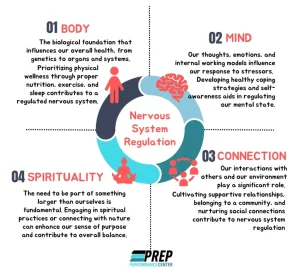
Nutrition and mental health are closely linked, and the food we eat can influence both. Properly balanced diets supply our bodies with the right amount of vitamins, minerals, and energy. While proper nutrition can prevent mental illnesses, unhealthy diets can also lead to them. For example, eating sugary and processed foods is not good for your mental health.
Fortunately, we now have a lot of information on how nutrition can affect our mental health. Studies have shown that eating healthy food can help prevent and even reverse the symptoms of mental illnesses, including depression. More experts are starting to realize the importance of nutrition in the mental health field, which has given rise to a field known as nutritional psychiatry.
Studies have also linked certain nutrient deficiencies to mental illnesses. A diet rich in fruits and vegetables, olive oil, and lean red meat can help the brain function well. These nutrients influence our brain’s ability to regulate mood and function, so it’s essential to include them in your daily diet. In addition, a balanced diet can help you feel more energetic, less depressed, and less stressed.
A healthy diet rich in antioxidants can prevent oxidative stress in the brain, which can lead to depression and anxiety. Many fruits and vegetables contain antioxidants. Additionally, omega-3 fatty acids are necessary for healthy cell membranes and brain function. Increasing your intake of these fats can help reduce cravings and improve overall mental and physical well-being.
Studies have shown that inflammation is linked to certain mental health conditions, including depression. The International Society for Nutritional Psychiatry recommends omega-3 supplements to people suffering from major depressive disorder. A nutritional approach to mental healthcare includes a focus on diet as well as behavioral therapy. This approach incorporates the latest research in the field of nutrition and mental health.
People who suffer from mental health disorders are particularly encouraged to limit sugar intake. An excessive amount of sugar can cause mood disorders. The university’s SugarScience website points to a study that identified a connection between excessive sugar intake and depression diagnosis. In addition, excessive sugar consumption can lead to systemic inflammation and adrenal fatigue.
Carbohydrates influence mood significantly, triggering the release of the hormone insulin. Insulin has many effects on the body, including affecting serotonin levels in the brain. Higher levels of serotonin promote sleep and mood. But it is not clear whether the increased levels of serotonin will cause a person to become drowsy after a large meal.







